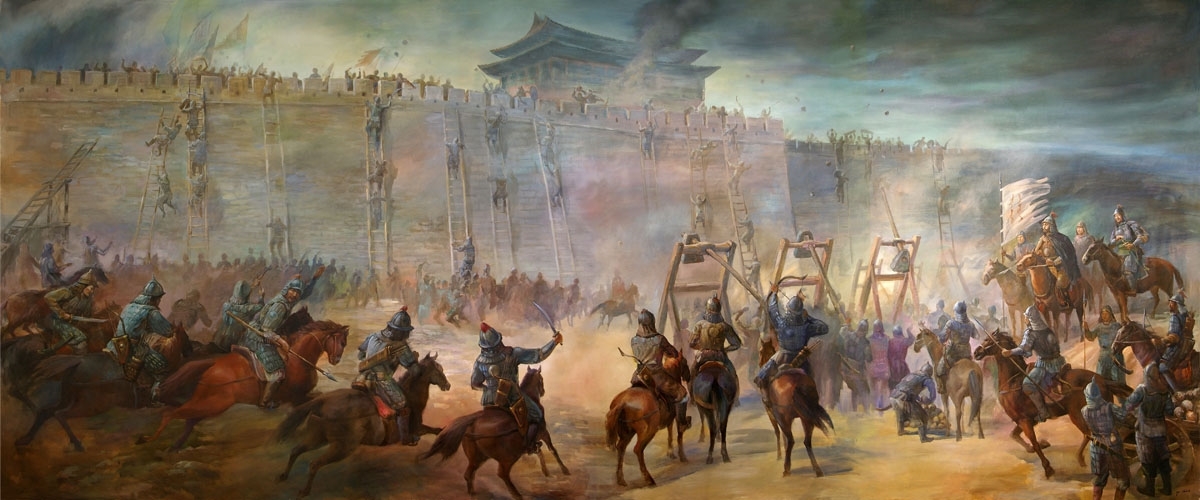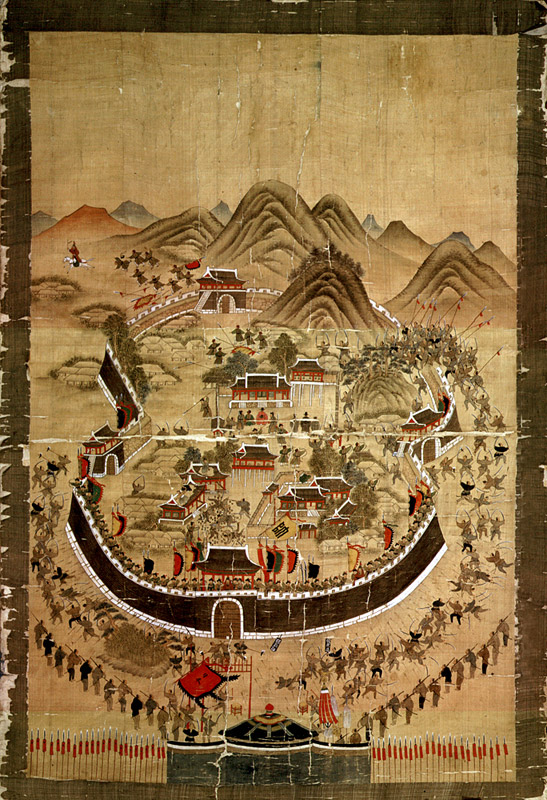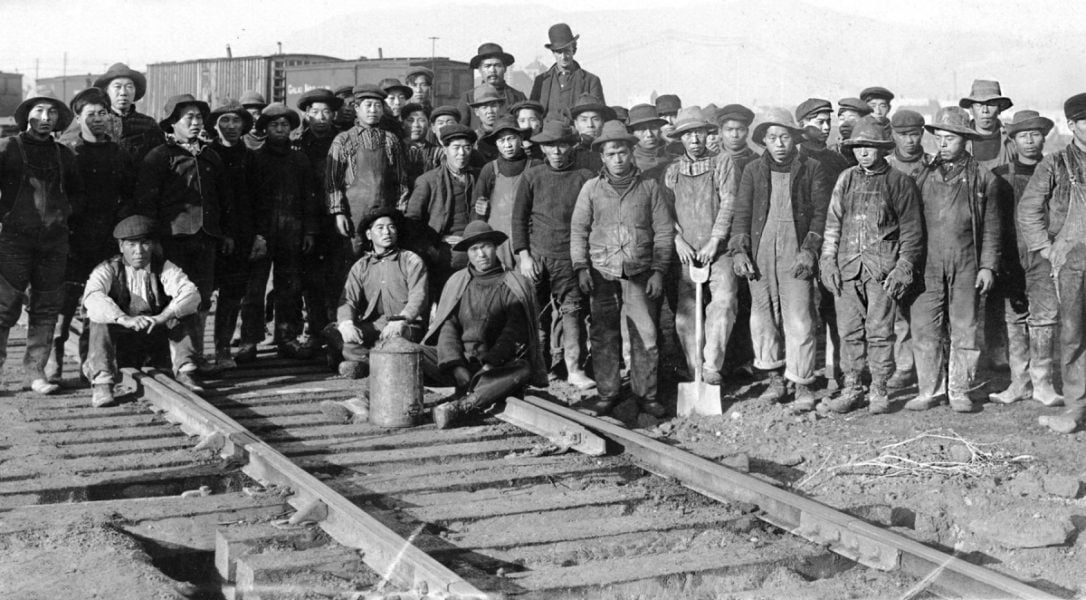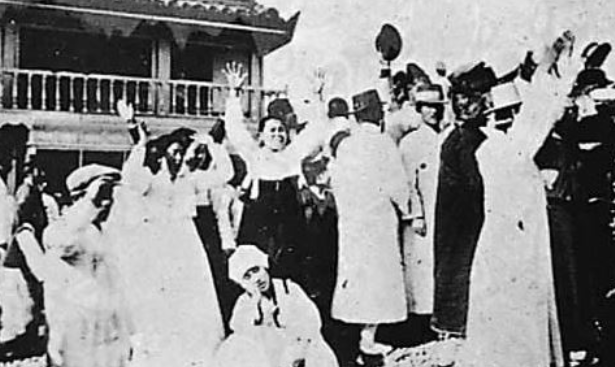Lone Wolf
Deity
- Joined
- Dec 4, 2006
- Messages
- 9,908
A "history booklet" of an underground Korean resistance school
It is said, "know your enemy". Thus, to keep Korean culture and nation alive in these troubling times, and to prepare ourselves for the day when we will gain our independence again, we need to know how our enemy came to be.
The early history of Mongol tribes is not that different from ours. At this time, the evil that currently rules the planet has not yet taken place in them. Like our Confederation of the Three Han, the early Mongolian tribes formed a loose confederation, culturally influenced by their Chinese neighbors to the south.

It was during the reign of Genghis Khan the Mongols changed their national character for the worst. While previous Mongol confederacies already conquered some cities and regions from China, it was Genghis who led his people on the way to a total conquest and domination of another nation...

Chinese Emperor Lizong greatly overestimated the power of his realm. Prioritizing knowledge and learning by collecting books in the Great Library of Beijing, he neglected the study of military strategy. Thus, he failed to use his own mounted troops (who, as even some official Mongol historians acknowledged, weren't tactically inferior to Mongol mounted archers) effectively. Let this be a lesson to us - learning and a will to fight is nothing without a proper strategical approach.
The Mongols, however, correctly identified the defenders' weakness, charging right into the capital, collapsing Chinese resistance.

Mongolian horse archers committed many atrocities against the Chinese.

In all this, our enemies were far from being the most cultured or the most advanced nation, as testified by renowned medieval historian Livy. Let this be a lesson for us: any advancement or sophistication, any theoretical understanding, is nothing without force to back it up.

At the beginning of the loss of our independence, the Khans still kept an iron-fisted control over their people. Ours, on the contrary, were divided into many feudal realms and factions, unable to reach true national unity. Today we can see that a national movement mired in separate sects and grouplets always loses. Only a united front of all forces can defeat a more powerful enemy.

Feudal eunuchs and bureaucrats of Seoul and Pyongyang did not see the evil coming from the Mongols down south. They spent their time in idle pleasure, disregarding the needs of the people.

Let this be a lesson: a fighter who neglects the well-being of the masses is doomed to defeat.
The Russians had once stopped the Mongols with their musket weaponry (which was new at the time), suffering only mild territorial losses. They could be a bulwark against Mongolia in the west. However, the Czar betrayed the anti-Mongol cause for incense, ivory, gold and a chance to conquer our lands. Those who chase short-term benefit, become slaves in the long run.

The truest heroes of the Bitter War were our martial arts practitioners. Unarmed with guns, their fighting spirit fell many over-confident Mongol cavalrymen and Russian cossacks.

Our youth, even under Mongol occupation, should achieve the same clarity of mind and purpose as these ancient heroes.
Our composite bow wielders inflicted severe casualties on the invaders.

Even nature did everything possible to stop the invaders. Mountains themselves rained hail and snow on them, halting their advance. People staged revolts and uprising in conquered lands.

But firm as they were, Korean people couldn't ultimately resist Mongol hordes, abetted by venality and incompetence of the Seoul feudal court.


Our land groaned as it was divided between Russia and Mongolia. The flower of our nation was sent to build railroads for the new masters, in grueling conditions and for small pay.


Soon, the Mongols betrayed the Russians. The Czar was one of the few people to be surprised by it. The famed offensive power of Russian Cossacks came to naught, as bloodthirsty Mongol cavalrymen attacked them with an element of surprise.

It is said, "know your enemy". Thus, to keep Korean culture and nation alive in these troubling times, and to prepare ourselves for the day when we will gain our independence again, we need to know how our enemy came to be.
The early history of Mongol tribes is not that different from ours. At this time, the evil that currently rules the planet has not yet taken place in them. Like our Confederation of the Three Han, the early Mongolian tribes formed a loose confederation, culturally influenced by their Chinese neighbors to the south.

It was during the reign of Genghis Khan the Mongols changed their national character for the worst. While previous Mongol confederacies already conquered some cities and regions from China, it was Genghis who led his people on the way to a total conquest and domination of another nation...

Chinese Emperor Lizong greatly overestimated the power of his realm. Prioritizing knowledge and learning by collecting books in the Great Library of Beijing, he neglected the study of military strategy. Thus, he failed to use his own mounted troops (who, as even some official Mongol historians acknowledged, weren't tactically inferior to Mongol mounted archers) effectively. Let this be a lesson to us - learning and a will to fight is nothing without a proper strategical approach.
The Mongols, however, correctly identified the defenders' weakness, charging right into the capital, collapsing Chinese resistance.

Mongolian horse archers committed many atrocities against the Chinese.

In all this, our enemies were far from being the most cultured or the most advanced nation, as testified by renowned medieval historian Livy. Let this be a lesson for us: any advancement or sophistication, any theoretical understanding, is nothing without force to back it up.

At the beginning of the loss of our independence, the Khans still kept an iron-fisted control over their people. Ours, on the contrary, were divided into many feudal realms and factions, unable to reach true national unity. Today we can see that a national movement mired in separate sects and grouplets always loses. Only a united front of all forces can defeat a more powerful enemy.

Feudal eunuchs and bureaucrats of Seoul and Pyongyang did not see the evil coming from the Mongols down south. They spent their time in idle pleasure, disregarding the needs of the people.

Let this be a lesson: a fighter who neglects the well-being of the masses is doomed to defeat.
The Russians had once stopped the Mongols with their musket weaponry (which was new at the time), suffering only mild territorial losses. They could be a bulwark against Mongolia in the west. However, the Czar betrayed the anti-Mongol cause for incense, ivory, gold and a chance to conquer our lands. Those who chase short-term benefit, become slaves in the long run.

The truest heroes of the Bitter War were our martial arts practitioners. Unarmed with guns, their fighting spirit fell many over-confident Mongol cavalrymen and Russian cossacks.

Our youth, even under Mongol occupation, should achieve the same clarity of mind and purpose as these ancient heroes.
Our composite bow wielders inflicted severe casualties on the invaders.

Even nature did everything possible to stop the invaders. Mountains themselves rained hail and snow on them, halting their advance. People staged revolts and uprising in conquered lands.

But firm as they were, Korean people couldn't ultimately resist Mongol hordes, abetted by venality and incompetence of the Seoul feudal court.


Our land groaned as it was divided between Russia and Mongolia. The flower of our nation was sent to build railroads for the new masters, in grueling conditions and for small pay.


Soon, the Mongols betrayed the Russians. The Czar was one of the few people to be surprised by it. The famed offensive power of Russian Cossacks came to naught, as bloodthirsty Mongol cavalrymen attacked them with an element of surprise.

Last edited:








